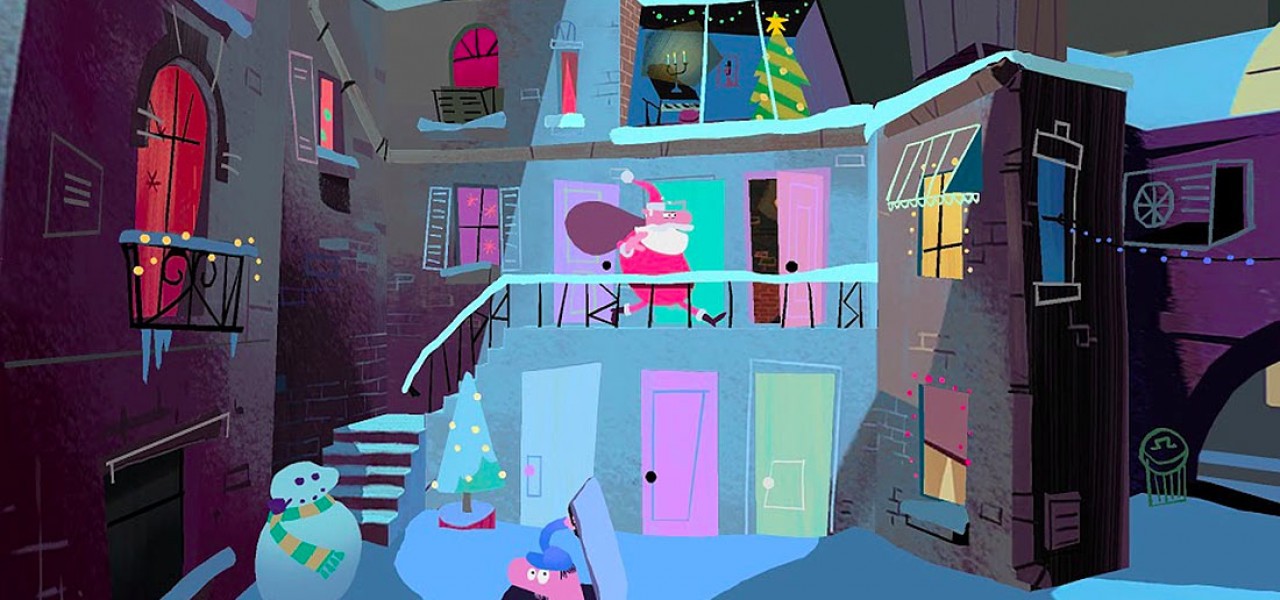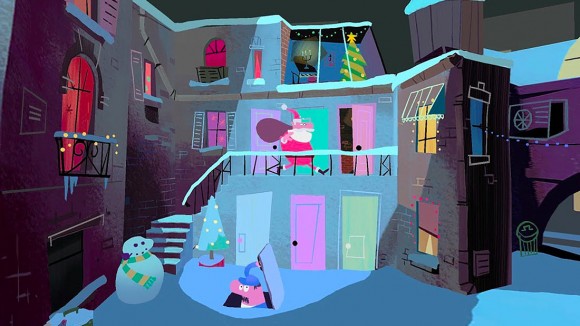

Aardman’s Interactive Short ‘Special Delivery’ Is Now Available on YouTube 360
The venerable British animation studio Aardman Animations has delivered its first interactive short for Google’s Spotlight Stories initiative, which can be viewed on YouTube 360 and numerous Android devices (see full list here).
Developed by Google’s Advanced Technology And Projects (ATAP) group, Special Delivery is the latest in a series of Spotlight Stories shorts, which started with Jan Pinkava’s Windy Day, followed by Mark Oftedal’s Buggy Night and Glen Keane’s Duet.
Described as a “Pink Panther-style holiday caper,” the interactive 360-degree Aardman piece, directed by Tim Ruffle, follows a building superintendent attempting to catch a mysterious intruder during the holiday season. The short draws on Alfred Hitchcock’s Rear Window for its courtyard setting, and on “Cartoon Modern” styling for its production design, which was conceived by Nigel Davies (character design), Andy Janes (storyboard/layout), and Aurelien Predal (color keys).
But the look of the short is less important than how it is experienced. In the full interactive experience which uses the motion sensors of mobile devices, the story includes 10 subplots, three potential ways to see the ending, and 60+ moments where you can decide to follow the story in different ways. As with the earlier Spotlight shorts (and unlike traditional animated films), the experience can take different lengths of time depending on how long the viewer wishes to explore the world.
Building on the earlier Spotlight shorts, the Aardman cartoon is the first Spotlight Story to be hosted on YouTube. Eventually, the whole Spotlight Stories series will be moved to the YouTube app (and optimized for all Android and iOS devices), according to a report in Variety.
Special Delivery is also a non-linear experience in a way that the earlier Spotlight Stories weren’t. “Most of the scenes are available to you from the first moment you enter,” Spotlight technical lead Rachid El Guerrab told The Verge. “It’s like downloading half of your movie in the beginning few seconds.”

The complex planning process of creating a non-linear experience can be seen in the piece of pre-production artwork above. Different hotspots within the story timeline trigger different parts of the plot, a technical trick that also required Google’s engineers to develop a method to do non-linear streaming on YouTube.
Where is all of this headed? Will these early experiments lead to a significant new art form? It’s perhaps a little too early to answer those questions, but interactive animation is here to stay for now and important technological advances are being made almost monthly. We’re committed to covering interactive and virtual reality filmmaking on Cartoon Brew so stay tuned to our continuing coverage throughout 2016.

